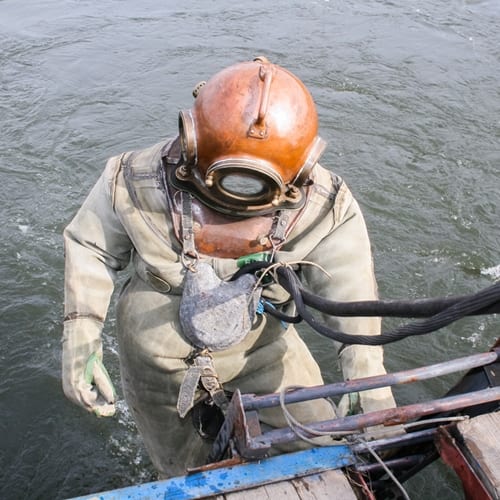It's said that if you find something you love to do, you'll never work a day in your life. This is a statement that many commercial divers are realizing for themselves, putting to use in the water the hands-on skills they've learned over the course of their lives.
But not only is commercial diving rewarding in terms of tasks tackled, it's also rewarding in the economic sense of the term, cracking Forbes' top 20 list for the most high-paying blue-collar jobs in America.
With an average annual salary of $58,640, commercial diving made the No. 7 spot on Forbes' list, which details the professions where manual laborers make a substantial chunk of change, relative to other jobs that involve manual labor. At this annual pay, that's the equivalent of roughly $28.25 per hour, though commercial divers in California tend to get paid more with demand being higher.
Where most commercial divers find employment
According to the Bureau of Labor Statistics, there are roughly 3,500 commercial divers in the U.S., with the largest employment bases found along the Gulf Coast – specifically Texas and Louisiana – as well as the Pacific Northwest. Commercial diver population density tends to be larger in Michigan also, and divers in the Wolverine State have the highest mean wage among states with the largest level of commercial diver employment.
At an average annual salary of nearly $58,700, that's a healthy amount more than the median is in the U.S. Based on newly released estimates from job recruitment firm Glassdoor, the median base pay for workers in March was $51,336, up 3 percent on a year-over-year basis. That's the fastest rate of increase in three years.

10 percent make $90,000+
Of course, what full-time workers make is highly contingent on the profession that they're employed in, and what kind of experience they have. Similarly, commercial divers' earnings can differ widely, even though they fall under the same title. For example, the top 10 percent of commercial divers make approximately $95,000 per year, depending on the type of diving performed and how much experience divers have, according to the Bureau of Labor Statistics. Also, because more risk is involved, commercial divers who handle hazardous material tend to have higher compensation packages compared to scientific divers.
Fisk Marine Insurance International has more than a quarter of a century of experience insuring the commercial diving and marine services industries, providing high quality coverage products to contractors and divers alike. While commercial diving is our bailiwick, our top-of-the-line services cater to an eclectic variety of marine professionals. Download our free eBook to view a small sampling.


